News
MOMA partners with UK university to optimise oat milk
10 Feb 2023Oat milk brand MOMA Foods is optimising the ingredients in its oat milk and improving sustainability in a co-funded project with the UK’s Teesside University.
Oats have become a popular ingredient in plant-based dairy products over recent years with their use growing by 18% and 11% in plant-based milk drinks, plant-based ice cream and frozen yoghurt respectively, from 2018 to 2022, according to Mintel.
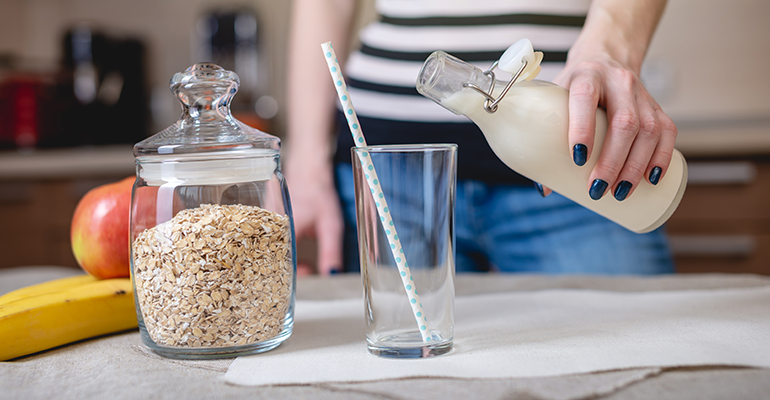
MOMA Foods has grown rapidly since its foundation in 2006 and launched its first range of oat milk in 2020, following a Knowledge Transfer Partnership (KTP) with Portsmouth and Teesside universities.
Building on its previous success, MOMA recently announced that it will support the funding of a PhD studentship at Teesside, working alongside professor John S. Young from the National Horizons Centre, the national centre of excellence for bioscience at the university.
Improving oat milk through science
The project aims to develop novel methods of testing the quality of oat milk onsite by creating a new monitoring tool, which will analyse fat and protein content. It will also involve working with suppliers to optimize ingredients and explore approaches to creating new strains of enzymes to break down oats.
“It’s vitally important that we bring academic knowledge into the industry and don’t operate in a silo and working with Teesside University will help us to achieve this,” said Tom Mercer, founder of MOMA Foods.
MOMA’s oat milk range was initially developed with the support of Portsmouth and Teesside University academics who worked to refine the ingredients and ensure the right combination of enzymes were being used to break down the starch in the oats. This resulted in a foamable product that did not split when added to hot liquid.
The results of this partnership have been significant, with oat milk overtaking porridge as MOMA’s best-selling product. The milk has received several awards, including a Great Taste Award, and is stocked at a range of key retailers in the UK including Tesco, Waitrose, and Sainsbury’s.
A sustainable solution to traditional dairy
Traditional milk production accounts for around 2.2% of global greenhouse gas emissions. Oat milk, which can contribute to reducing greenhouse gas emissions by reducing methane production from cows, offers a sustainable alternative to traditional dairy milk.
“At Teesside University, a key pillar of our research strategy is forging a smarter, greener economy through novel and disruptive technologies. Our ongoing relationship with MOMA has already delivered real impact by helping the company develop an innovative product that is not only creating jobs and new markets for the business but could have a real impact in reducing global emissions,” said professor John S. Young.
Addressing the call for reduced-sugar alternatives
Where sustainability is concerned, oat milk significantly outperforms traditional milk. One study found that oat milk production requires 60% less energy, 80% fewer greenhouse gas emissions, and 80% less land than cow milk.
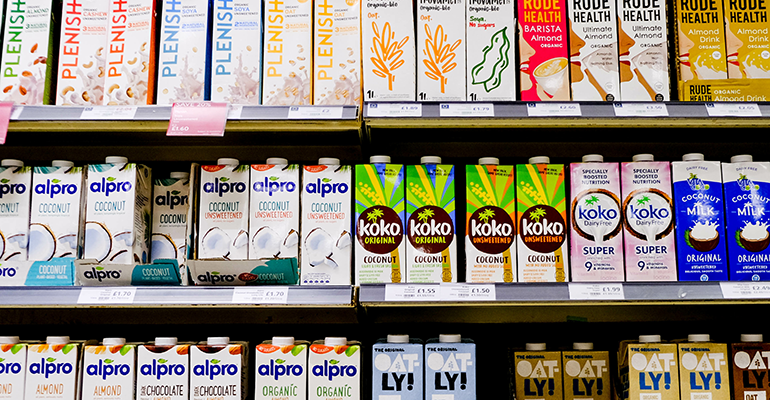 © AdobeStock/Martin Lee
© AdobeStock/Martin Lee
Yet questions have been raised as to the healthiness of oat alternative products. While most unsweetened (no added sugar) oat milk brands contain less sugar than traditional milk, the claim that they are sugar-free is oftentimes misleading. Oatly Original contains around 7 g of sugar per serving, compared to Silk Oat Yeah, Planet Oat, and Quaker Oat Beverage which contain 5 g, 4 g, and 0 g respectively.
Often, these naturally occurring sugars are the result of the enzymatic process that occurs when oat starch is broken down after being mixed with water to create the oat milk base. According to guidance issued by the US Food and Drug Administration (FDA) in 2018, sugars created through processes such as hydrolysis should be declared as added sugars on product labels.
MOMA is yet to confirm whether the project will also seek to reduce the sugar content and boost the healthiness of their oat milk.
Related news
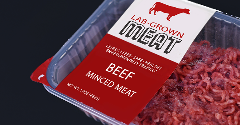
Israel approves Aleph Farms’ cell-cultured beef in world first
1 Feb 2024
Israel has granted the first regulatory approval for the commercial sale of cultivated beef, joining the US and Singapore in officially recognising cultivated meat’s role towards protein diversification.
Read more
Fazer and Solar Foods launch snack bar made with air protein
30 Jan 2024
Finnish food manufacturer Fazer has teamed up with foodtech startup Solar Foods to launch a limited-edition snack bar in Singapore made using a novel, carbon-fed microbial protein.
Read more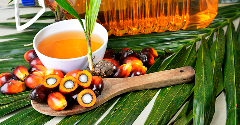
Big brands invest in precision fermentation-derived palm oil
25 Jan 2024
Although still not approved for food applications, big brands such as Unilever and Doehler are investing in precision fermentation-derived palm oil in a bid to reduce the environmental impact associated with this conventional palm oil.
Read more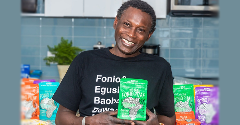
Supergrain fonio expands its reach in US market
11 Jan 2024
More US consumers will find nutritious, climate-smart grain fonio in supermarkets thanks to a new distribution structure for the import’s most prominent commercial brand, Yolélé.
Read more
Sustainability meets innovation at Fi Europe 2023's Sustainability Ingredients Zone
9 Jan 2024
Fi Europe’s Sustainable Ingredients Zone showcases ingredients forging a path toward a greener future. Three innovators are redefining what sustainability within the food and beverage industry means, with upcycled products, regenerative agriculture, an...
Read more
Supermarkets innovate with private label plant-based ranges
9 Jan 2024
Plant-based product ranges are an important part of retailers’ private label innovation efforts – and represent an important way for supermarkets to reduce their environmental impact.
Read more
The UK prepares to open food security science centre
2 Jan 2024
Amid global food insecurity, the UK government says it is committed to producing crops resilient to climate change and addressing hunger and malnutrition with a food security science centre.
Read more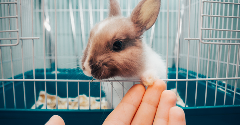
Novel food safety platform could eliminate animal testing
21 Dec 2023
The European Food Safety Authority (EFSA) has introduced a new platform that has the potential to eliminate animal testing in the food industry.
Read more
Water-conscious consumers, upcycled food, and tech-driven sustainability: Highlights from Fi Europe, part 2
14 Dec 2023
With climate change becoming a tangible reality, consumers’ environmental concerns are changing. At Fi Europe, market analysts revealed how people are now interested in everyday issues like water shortages and tech-driven solutions such as GM drought-r...
Read more
The food industry’s single-use packaging problem
12 Dec 2023
The food industry’s reliance on single-use packaging is a sustainability “sticking point” with viable alternatives not widely available – but new EU rules mean food businesses will remain responsible for the collection and disposal of the packaging the...
Read more